Finnish capital city Helsinki aims to make private vehicle ownership redundant by 2025, and other cities will follow. By offering a digital service that integrates the entire transportation network and end-to-end journey planning, transportation will be made highly convenient and cashless.
The Future of Transportation World Conference will examine MaaS and what it means to all current mass-transportation providers, automotive manufacturers, rail operators, taxi firms, new mobility providers, and small-scale private providers of the last-mile transportation operations of the future. The challenges of integrating and regulating so many forms of transport and so many providers will be significant.
We will hear the latest results and findings from those building a MaaS network, visionary startups, specialist consultants, and experimental project leaders from cities around the world already trialling concepts.
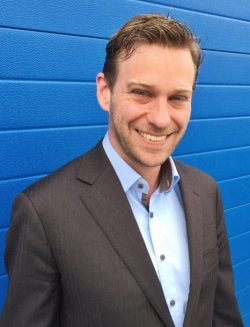
Dennis Mica
business development manager
2getthere
NETHERLANDS

Synopsis: Today, many cities are trying to remove cars from their cities. It is a worthwhile initiative, but there is often a lack of good alternatives for traveling toward your destination. 2getthere will explain more about the current possibilities of self-driving public transit systems, their current technical status and their benefits. Sharing rides will mean less space needed for cars and more space for citizens. In addition, 2getthere will provide insights into the projects under contract: real projects that actually solve a transit need, without a steward or attendant on board.

Tom Williams
director of technology and innovation
Ascendal Group
UK

Synopsis: This talk will discuss the work required to bridge the gap between current operational standards in autonomous tests and trials and what is expected in public transport services. Two worlds with different approaches to operations are converging, and we have to ensure that we can deliver safe, reliable, customer-focused public transport solutions leveraging new technology. Achieving this will require changes to regulations, technology tailored to public transport standards, and an evolution in the way traditional operators deliver services. We will discuss our work to date and the challenges that will face the mobility ecosystem.

Werner Kutil
international business development manager
Cityway
FRANCE
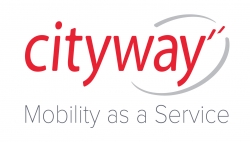
Synopsis: The presentation will provide detailed information on the Moovizy MaaS project. In the Saint-Etienne Metropolitan Area in France, citizens will be able to manage their mobility in a completely new way. With the help of Cityway, provider of IT solutions for MaaS, at the end of 2019 the Saint-Etienne Metropolitan Area will launch its full MaaS application: Moovizy 2. With Moovizy 2, thanks to a single smartphone application people will have high-quality, multimodal real-time information including intermodal real-time and predictive journey planning, and multimodal m-ticketing (use (book, unlock, validate) and pay) within the French Metropolitan Area of Saint-Etienne.
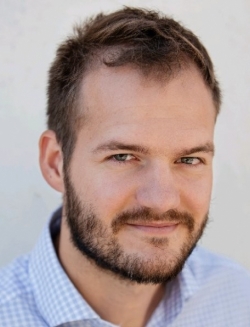
Balazs Csuvar
CAV lead
DG Cities
UK

Synopsis: Mobility as a Service is becoming central to the development of smart cities. Adoption of new transport offers is rapid, but understanding their overall, cumulative impact on urban microcosms is limited. That is what DG Cities aims to answer. Through the development of a mobility service performance index, DG Cities will attribute a measure to any mobility service in a given urban ecosystem. The framework will provide a vantage point for decision makers, enabling an analytical ranking of services by prioritizing a city’s objectives. DG Cities is building an articulate appraisal scheme that is tailor-made for the future of transport.
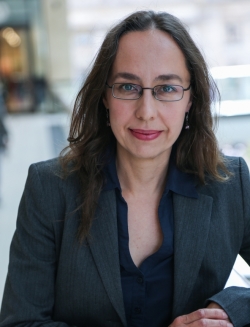
Tine Haas
principal
Dornier Consulting International GmbH
GERMANY

Synopsis: With the mobility behavior of passengers changing from using private cars to shared mobility offers, airports are under pressure to make up for lost parking revenue. Being operators of MaaS platforms would afford airports more control managing landside access. At the same time, airports could help the surrounding region gain convenient city access. Can airports serve as mobility hubs for the region and foster economic growth by providing mobility services? MaaS platforms could also play an important role in the management of traffic movements related to airport staff, which put considerable pressure on airport access infrastructure.

James Lancaster
director of policy
Enterprise Holdings
UK

Synopsis: The presentation will discuss how to make MaaS sustainable, and will outline the measures that cities can implement: transforming the planning system, mobility allowances and incentives.
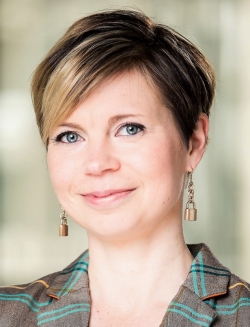
Piia Karjalainen
senior manager
ERTICO - ITS Europe
BELGIUM
Synopsis: The session will sketch an exciting picture of our future urban and suburban mobility. The main goal of this session is to support cities and regulators in preparing their responses and actions regarding these emerging, prominent services. The session also aims to show how drones will contribute toward integrating local communities and urban areas, enhancing the mobility network and answering real urban needs. Last-mile transport, passenger mobility, emergency use cases and traffic management will all be discussed, as well as issues on the governance of drone operations in the urban environment.
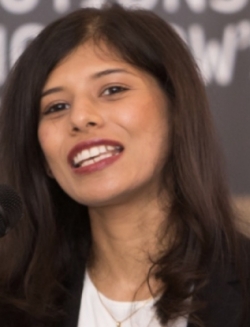
Shwetha Surender
industry principal - mobility
Frost & Sullivan
UK

Synopsis: The mobility landscape in cities is transforming rapidly. Discrete, siloed, narrow definitions of transportation are giving way to broader, more inclusive and sustainable concepts of mobility. The future of mobility will be highly integrated, electric and autonomous, and will be aimed at improving the user travel experience. Strategic collaborations among important stakeholders, both public and private, in terms of operating models, car usage, multimodal journey planning and payment options will drive smart mobility objectives in cities.
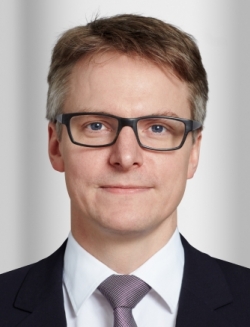
Jan Bonhage
partner
Hengeler Mueller
GERMANY

Synopsis: Platforms that bring together users and mobility providers will be an infrastructural backbone of many MaaS models. Several legal, structural and regulatory challenges arise in such platform schemes where service intermediaries substitute traditional service providers or mobility through individual vehicle ownership. This presentation will address the legal framework for platform models and increasingly relevant issues such as asset control and data ownership, privacy, consumer protection, competition, IT security, liability and regulatory evasion.
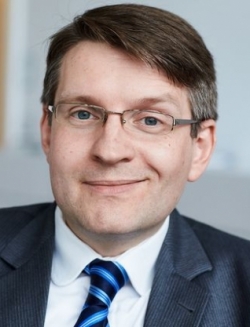
Matthias Berberich
counsel
Hengeler Mueller
GERMANY

Synopsis: Platforms that bring together users and mobility providers will be an infrastructural backbone of many MaaS models. Several legal, structural and regulatory challenges arise in such platform schemes where service intermediaries substitute traditional service providers or mobility through individual vehicle ownership. This presentation will address the legal framework for platform models and increasingly relevant issues such as asset control and data ownership, privacy, consumer protection, competition, IT security, liability and regulatory evasion.
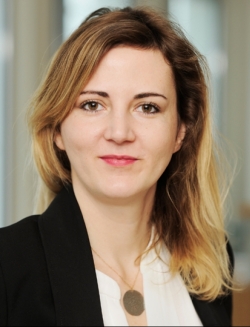
Charlotte Le Roux
senior associate
Hogan Lovells
FRANCE

Synopsis: For car manufacturers, but also suppliers and new entrants, autonomous, connected, electric and shared vehicles provide both challenges and opportunities. The challenge for the future of mobility will be in brand redefinition and identity. Many companies are already discussing the move from being car manufacturers to transport service providers, and how customers will change their perspective on what they are buying or using. This is an opportunity, not the end of the road.
Synopsis: Finnish capital city Helsinki aims to make private vehicle ownership redundant by 2025, and other cities will follow. By offering a digital service that integrates the entire transportation network and end-to-end journey planning, transportation will be made highly convenient and cashless. This presentation will examine MaaS and what it means to all automotive manufacturers and new mobility providers offering services such as carsharing, ride hailing or last-mile transportation operations of the future. The challenges of integrating and regulating so many forms of transport and so many providers will be considerable.
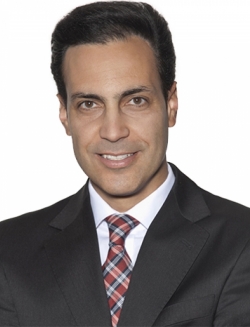
Patrick Ayad
partner and global head automotive and mobility
Hogan Lovells
GERMANY

Synopsis: For car manufacturers, but also suppliers and new entrants, autonomous, connected, electric and shared vehicles provide both challenges and opportunities. The challenge for the future of mobility will be in brand redefinition and identity. Many companies are already discussing the move from being car manufacturers to transport service providers, and how customers will change their perspective on what they are buying or using. This is an opportunity, not the end of the road.
Synopsis: Finnish capital city Helsinki aims to make private vehicle ownership redundant by 2025, and other cities will follow. By offering a digital service that integrates the entire transportation network and end-to-end journey planning, transportation will be made highly convenient and cashless. This presentation will examine MaaS and what it means to all automotive manufacturers and new mobility providers offering services such as carsharing, ride hailing or last-mile transportation operations of the future. The challenges of integrating and regulating so many forms of transport and so many providers will be considerable.
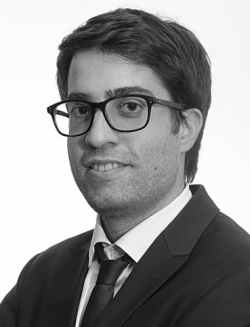
Juan Castro Arias
R&D project manager
Indra Sistemas SA
SPAIN

Synopsis: Shift2Rail (S2R) is the first European rail initiative to seek focused research and innovation and market-driven solutions by accelerating the integration of new and advanced technologies into innovative rail product solutions. S2R Innovation Program 4 (IP4) seeks to increase the attractiveness of railway transport by offering transparent and integrated door-to-door trips to promote multimodal transport. Hence, it is fully aligned with the MaaS approach. The CONNECTIVE project, included in IP4, is developing an interoperability framework that allows the integration of multimodal services. CONNECTIVE is also working on new business analytics techniques to perform useful analysis.

Boyd Cohen
CEO
Iomob
SPAIN

Synopsis: In this presentation, Iomob's CEO will demonstrate the latest deployments of the company's decentralized, open MaaS platform, including a project with Renfe, Spain's national rail service, and Ford Motors in the USA. He will challenge the status quo of the MaaS market and invite others to participate in the open mobility marketplace.

Becrom Basu
director
L.E.K. Consulting
UK

Synopsis: Hyperloop technology has the potential to revolutionize travel. It promises massively reduced journey times, lower capital costs and better energy efficiency. It is also expected to bring significant agglomeration benefits – claims that, coupled with the ability to 'virtualize' existing transport hubs, have caught the imagination of the market. Considerable work is underway to make hyperloop technology a reality, but what role will it play in future transport provision? L.E.K. Consulting examines the challenges aspiring hyperloop operators and investors must deal with before the technology can become a reality: overcoming technology barriers; pricing, public subsidy and commercial feasibility; and timing of roll-out.
Synopsis: Mobility services across the board are facing a revolution. Changing attitudes to private vehicle ownership and increasing pressure on the economics of mobility mean that the transport industry is experiencing unprecedented disruption from a technology enabler – Mobility as a Service (MaaS). What is MaaS, when should we anticipate its arrival, and what benefits will it bring for consumers and transport providers? L.E.K. examines the key factors driving MaaS, the roles that different parties will play in the MaaS ecosystem, opportunities for consumers and transport authorities, and the imperatives for governments and private mobility suppliers to consider their positioning.
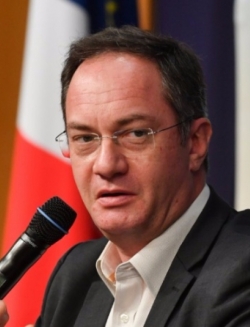
Stéphane Gervais
executive VP strategic innovation
Lacroix Group
FRANCE

Synopsis: Targeting mobility that will be inclusive, multimodal and MaaS, the city architecture should dramatically change (car park, roads, etc), which also implies changes in our society and way of living. By fully digitizing the city through multisensors and connectivity, the overall traffic can be managed in a predictive and adaptive way. Moreover, city architecture can evolve according to citizen needs and city manager strategy. Open innovation, co-construction and shift of power are some key enablers as well. Indeed, we figured out a model based on our numerous experimentations on autonomous transportation projects and long-time involvement in smart mobility.
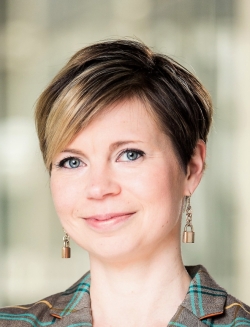
Piia Karjalainen
senior manager
MaaS Alliance
BELGIUM
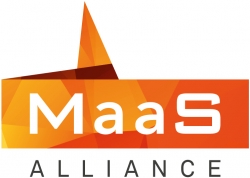
Synopsis: In its recent publication 'Recommendation on a User-Centric Approach for MaaS' (published in April 2019), the MaaS Alliance has identified a number of factors as pivotal for the MaaS user, affecting both the digital and physical user experience. The whole transport sector has a unique opportunity to redesign the ecosystem to be something better, more user-friendly and more inclusive than it has been to date, and this framework can be used to identify the complex variety of individual user needs and requirements.

Jan Tijs Nijssen
associate principal
McKinsey & Company
NETHERLANDS

Synopsis: The presentation will discuss the size of the market/value pool for Mobility as a Service, the ways in which the market might develop, the players that are emerging and what it will take to win.
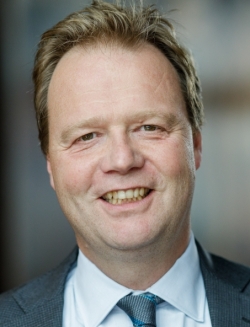
Eric Mink
program manager MaaS
Ministerie van Infrastructuur en Waterstaat
NETHERLANDS

Synopsis: Eric Mink is the program manager for the seven national MaaS pilots in the Netherlands. Together with seven regions, his team has kicked off seven national pilots for MaaS based on a harmonized definition, but each with their own policy goals or target groups. MaaS in the Netherlands is a means, not an end. Five of the seven pilots have now been awarded via tenders. The Netherlands is working on standardization in order to create an ecosystem where a level playing field for MaaS service providers and transport operators is guaranteed. Given that all private parties within the framework agreement have agreed to share their data with governments, the aim is to learn together what the (behavioral) effects of MaaS are. Based on the data, the Netherlands is aiming for real-time optimization of the mobility system on policy goals such as sustainability, traffic jams, occupancy ratios for public transport and accessibility of rural areas.
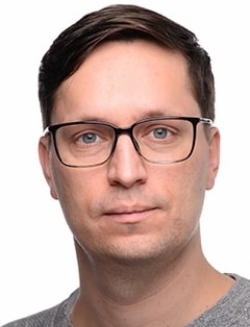
Lukas Foljanty
senior manager smart cities
Reach Now (formerly Moovel Group GmbH)
GERMANY

Synopsis: Urban mobility is rapidly changing. New mobility services are expanding quickly, putting pressure on traditional public transit. Cities are challenged to embrace mobility innovations, but also ensure that these novel mobility services serve the overarching public mobility strategy. With the advent of autonomous driving, taking an active role becomes ever more important for cities. Digitization enables cities to strengthen their position as mobility orchestrators by building an integrated urban mobility ecosystem and flexibilizing traditional public transit via the means of demand-responsive transit. This paper discusses the key ingredients in the successful implementation of a city-operated on-demand MaaS landscape.

Andreas Fuhrer
master program manager
SBB Swiss Railways
SWITZERLAND

Synopsis: For many people, mobility is a hassle. For national economies, it's a costly necessity. We are turning things upside down by fostering meaningful mobility emphasizing quality of life. A key element is the national digital infrastructure integrating all modes of transport from public transportation to car- and ridesharing, robotaxis and innovative slow mobility. In this talk we will explain the concept of meaningful mobility and what is underway to facilitate it, from the already implemented core integrating 250 transport companies, to the current work on an open digital infrastructure for shared mobility.

Darian Heim
director of growth
Sparelabs Inc
SPAIN

Synopsis: This presentation will deal with the lessons from the integration of Sparelab's (Vancouver) GoPass on-demand technology MaaS app in Dallas, Texas, which won APTA's 2019 Innovation Award. It will discuss the organization and expansion of the currently 14 sub-zones (more than 25 are planned) in the periphery of Dallas, where a flexible on-demand service feeds passengers into high-frequency light-rail trunk lines. It will also deal with the design of a user-centric consultation and booking process for journeys with flexible and fixed legs, plus mixing fleets of dedicated operator-owned vehicles and undedicated privately owned taxis to deliver on-demand service in peak hours.

Marco Ferreira
systems engineer
Thales Portugal SA
PORTUGAL

Synopsis: Mobility is undergoing significant transformations but also facing challenges. Hyperconnectivity is changing the way people address mobility and the paradigm of seamless travel. Mobility as a Service (MaaS) is an emerging concept that considers the mobility system as a whole, improving its efficiency and sustainability, and benefiting operators and travelers. This paper focuses on the active position taken by Shift2Rail; proposing and demonstrating a technological enabler addressing MaaS; aiming to provide tools and guidelines to ease the entry of transport operators into fully multimodal ecosystems; supporting efficient, seamless and pleasant travel experiences for passengers; and strongly contributing to a reduction in the impact of transport on the environment.

Joel Rozada
CEO & founder
The Techno Creatives
SWEDEN

Synopsis: Future mobility services are enabled by technology, but will also benefit from being designed more with its context in mind - both from a business model perspective and it usage. I will share learnings and conclusions based on real world applications and live products.
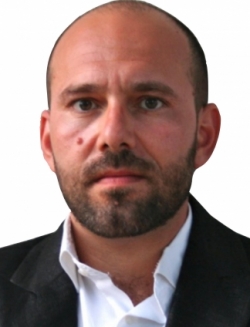
Nicola Dallatana
head of new e-mobility division
Toyota Tsusho
BELGIUM
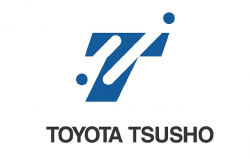
Synopsis: The debate on micromobility has recently been dominated by the safety challenges where there are no clear compliance and traffic law frameworks to regulate use now or in the future. Operators have demonstrated that the most active part of the population wants an increased offering in urban mobility. One topic that has not been sufficiently addressed is how micromobility has the potential to transform the lives of people who would not be considered ‘active’ users and who are currently underserved by new mobility innovations. Based on his long experience with light electric vehicles, wheelchairs and personal mobility devices, Nicola will talk about what he calls the advent of inclusive micromobility and how this will likely impact the way we will all move around in the city of the future.
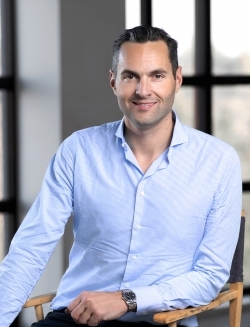
Christof Schminke
managing director commercial hub Berlin
Trafi
LITHUANIA

Synopsis: In today's mobility industry, everyone is fighting for the user, not realizing that the battle they should be focusing on is the bustling city. Trafi, a technology platform for mobility, and BVG, the main public transport company in Berlin, are forming a new partnership aimed at connecting the entire mobility system in the city. This is the first time that a European city the size of Berlin has deeply integrated an entire mobility network, spanning public and private operators, in order to make it easier for people to access and use different types of transport.
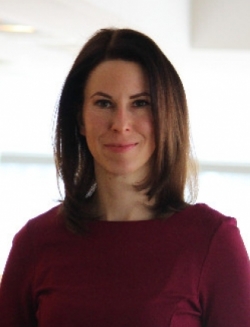
Christina Hubin
research and development division lead
Upstream Mobility
AUSTRIA

Synopsis: The DyNaMo (dynamic mobility management ) project calculates a total optimum for a given input of persons and providers. It processes static, dynamic, historical, real-time and forecasted data. We developed a graph optimization model that processes data, capacity of the vehicles, and infrastructure as well as supply and user demands. This dynamic mobility management system provides information for the optimal offer-distance-time-transport relationship in simulation, in real time and in forecast. The output of this learning system creates the total optimum for every single user demand in correlation to the number of demands and the traffic conditions.